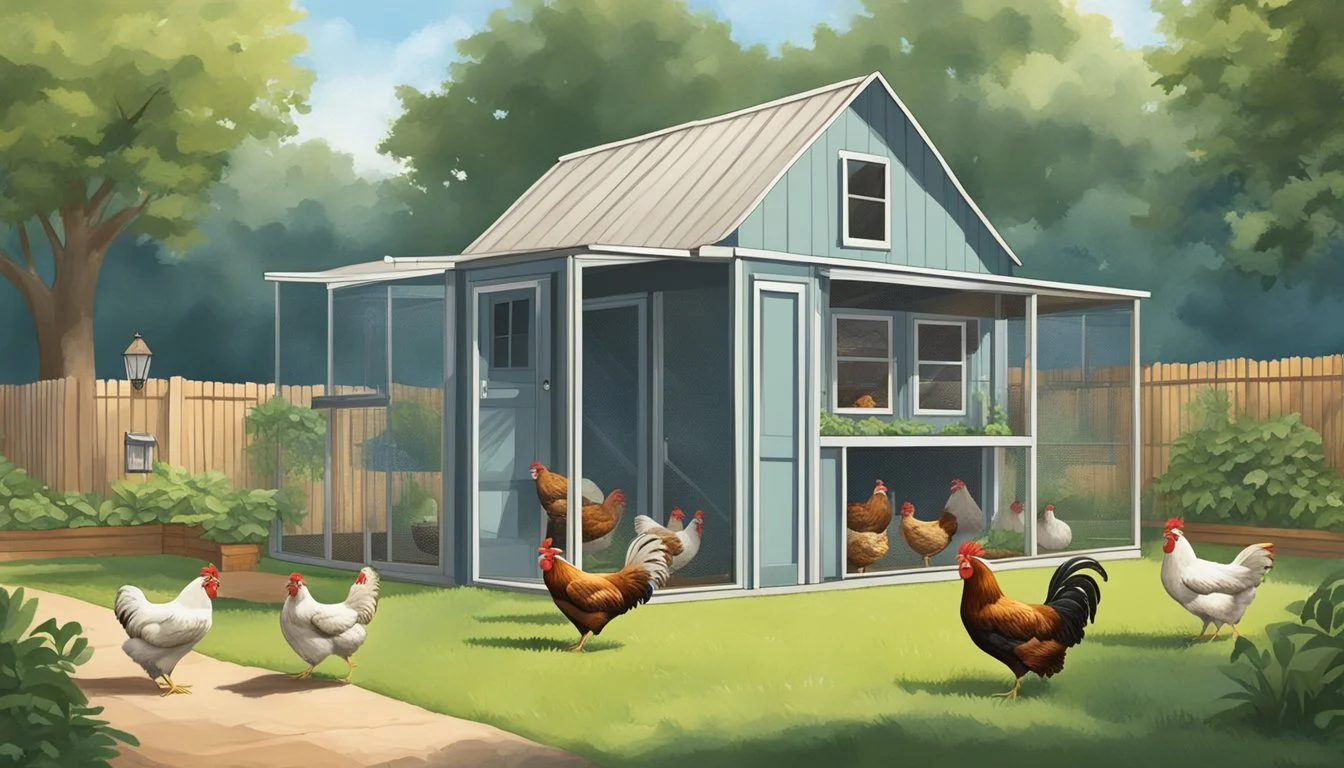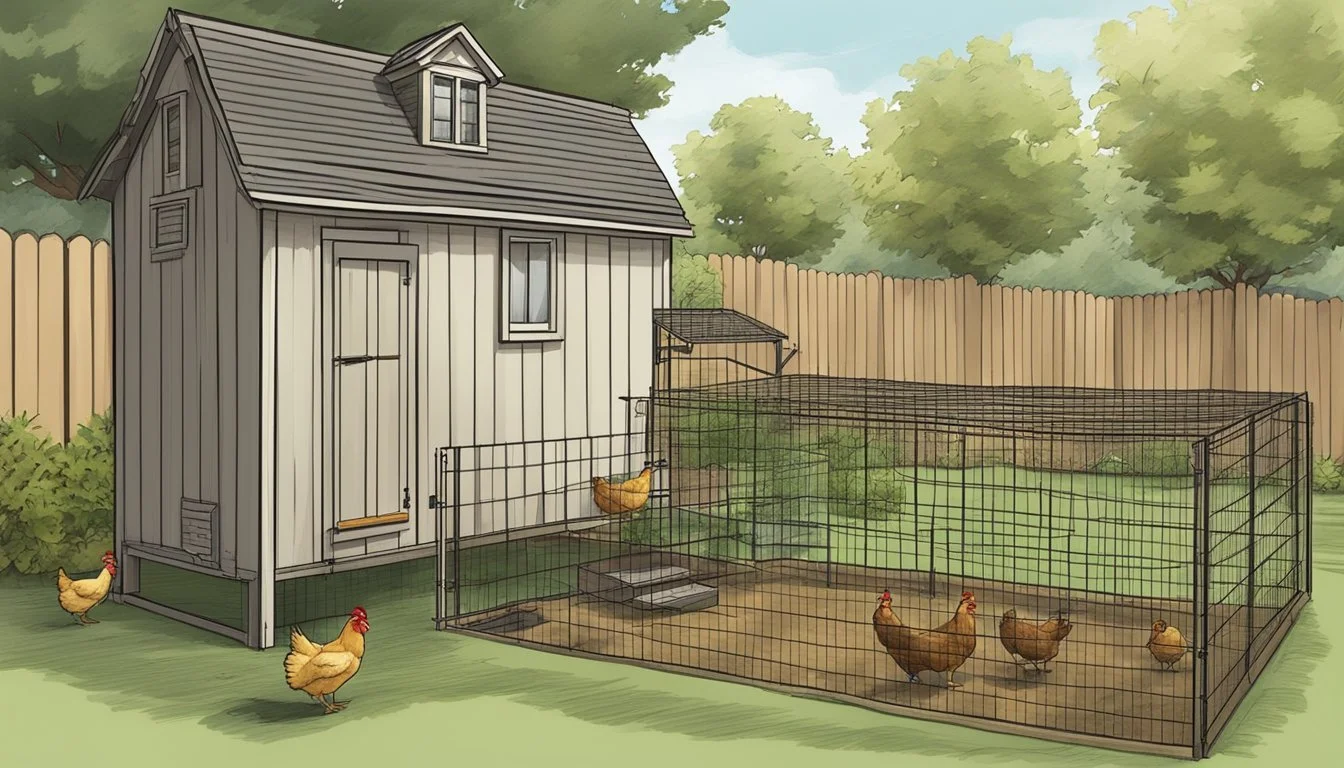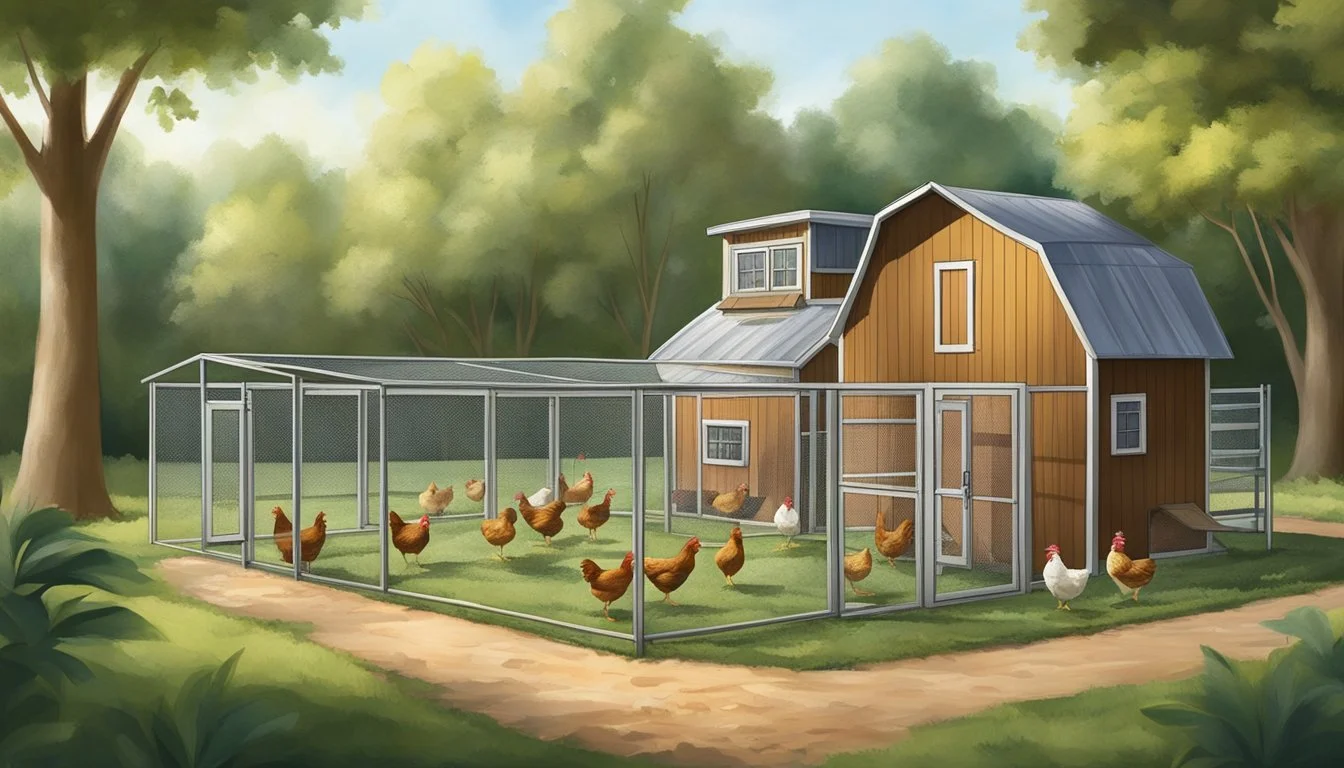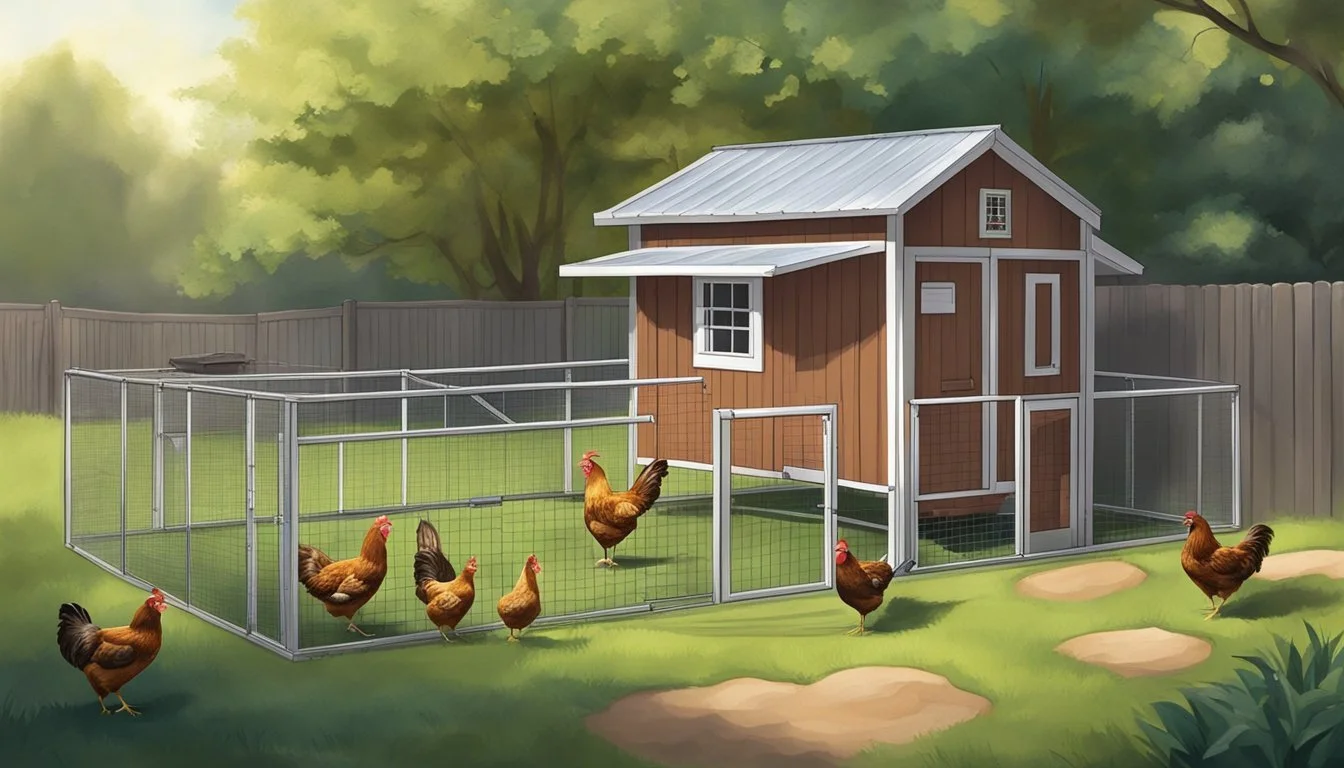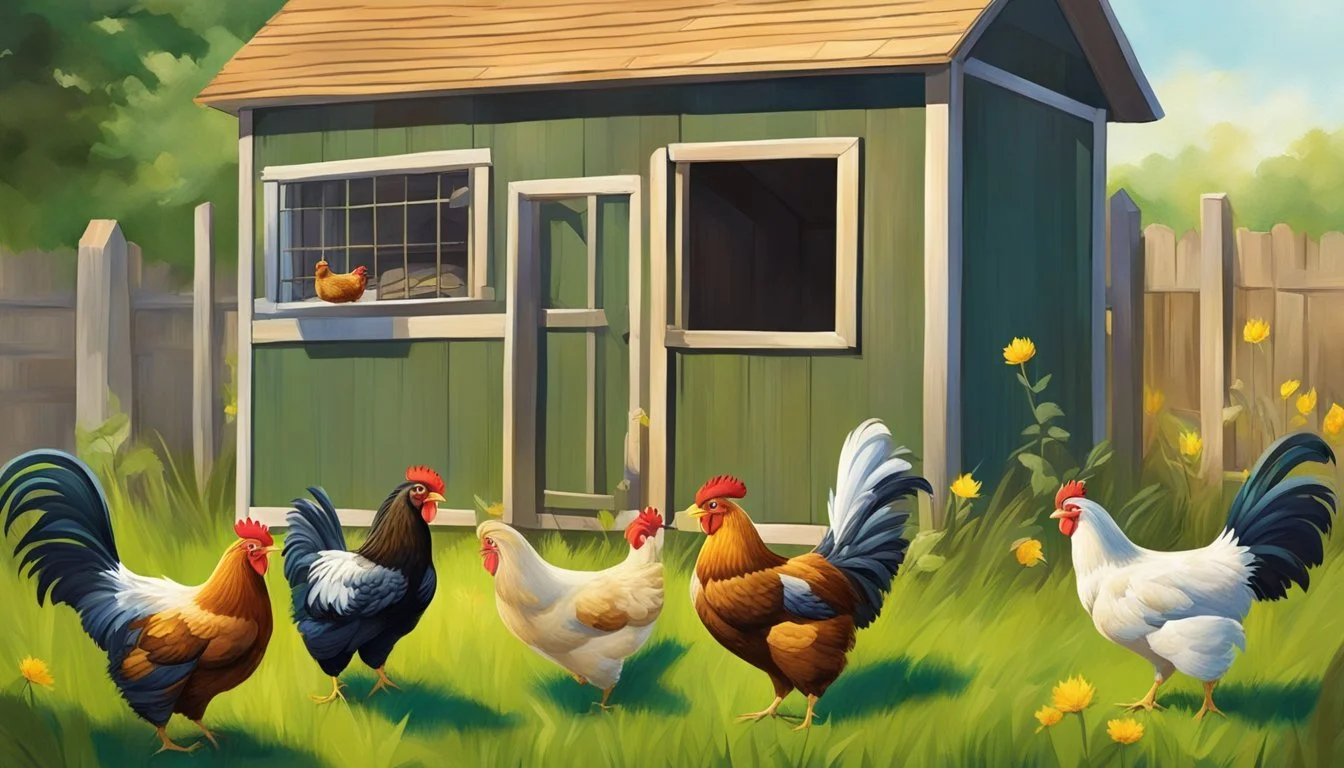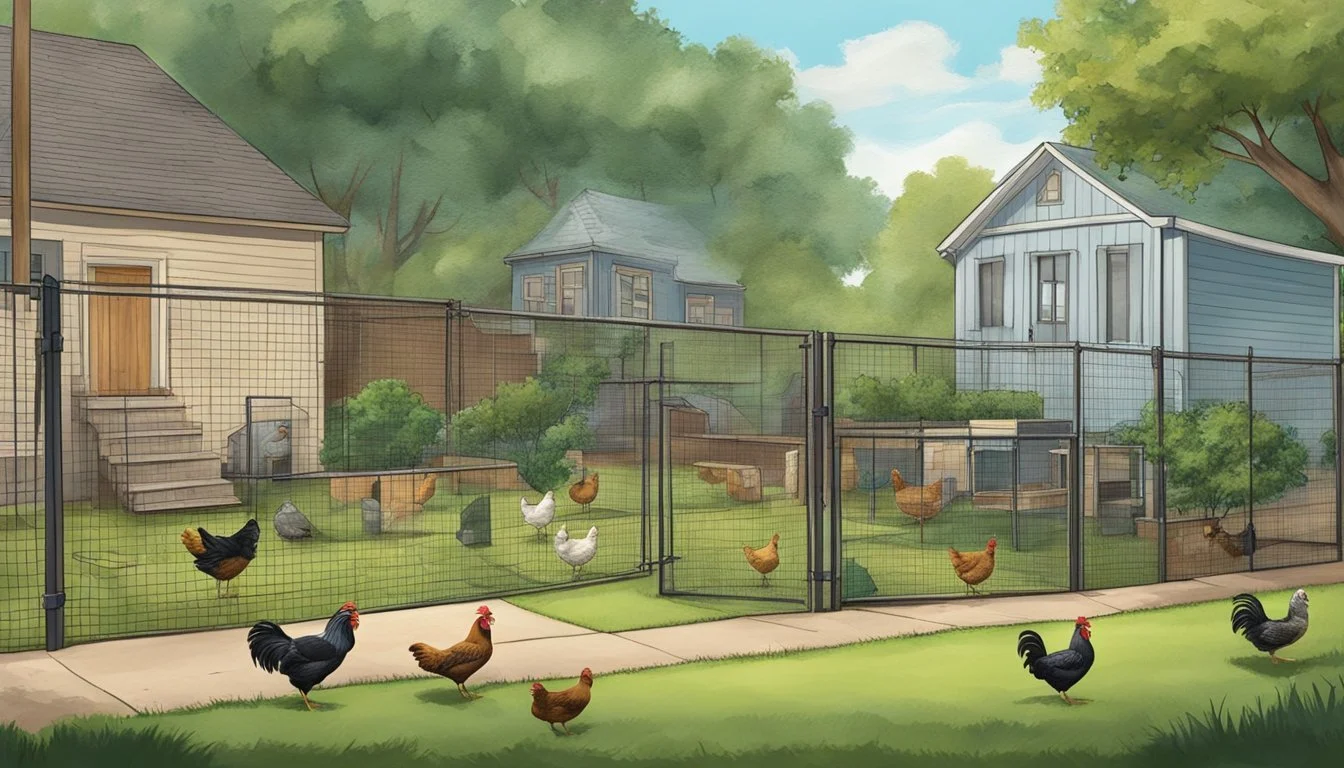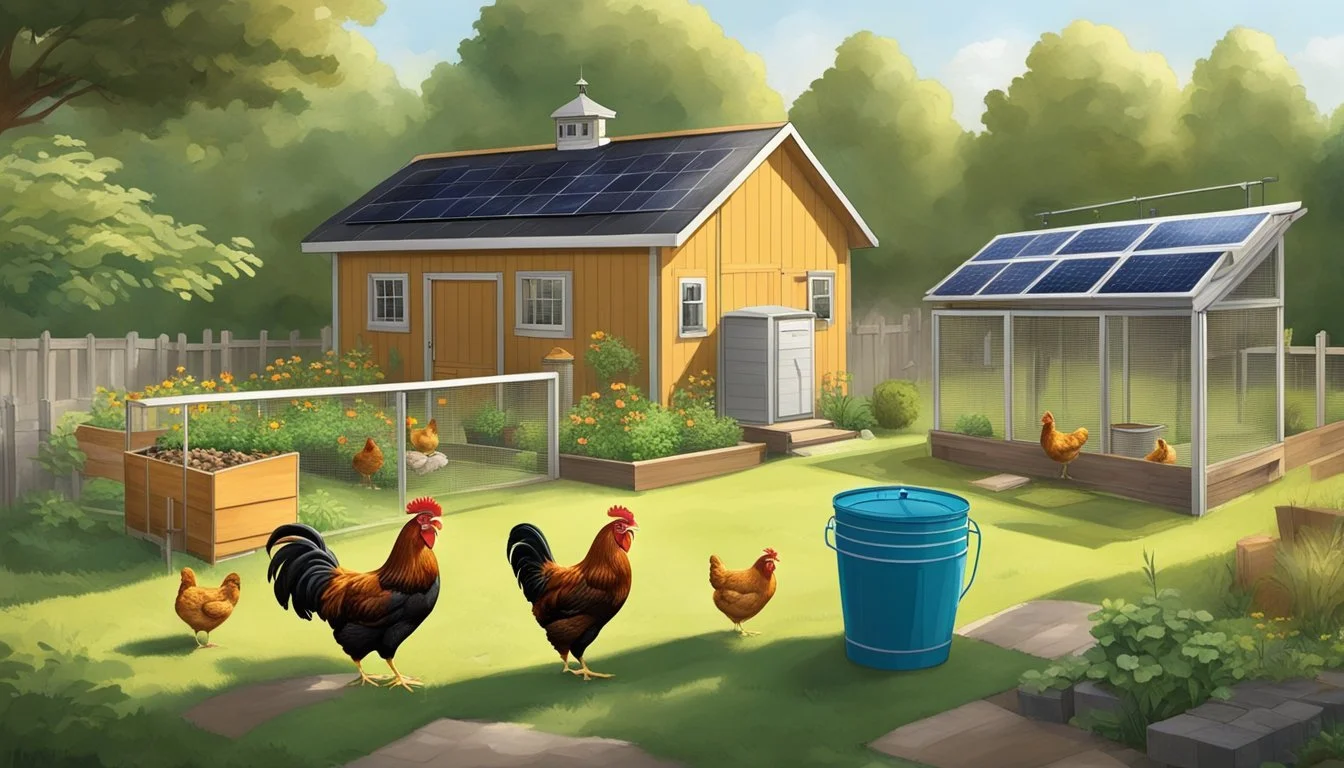Keeping Backyard Chickens in Shreveport, LA
Essential Tips for Beginners
In Shreveport, Louisiana, urban farming finds a charming expression in the form of backyard chickens (how long does chicken last?). Residents of the city have embraced the practice of raising hens, not just as a hobby but also as a sustainable means of obtaining fresh eggs. While this activity grows in popularity, it's supported by city regulations that allow up to six hens per household, providing an opportunity for homeowners to engage in this bucolic pastime within the urban landscape. The city's stance on backyard poultry emphasizes a balance between the interests of chicken enthusiasts and the well-being of the community.
To ensure harmony and public safety, Shreveport has set forth specific guidelines regarding the keeping of backyard poultry. Roosters are not permitted within city limits, addressing potential noise issues. The requirements stipulate that chickens must be housed in a predator-resistant enclosure with a minimum height of 42 inches, safeguarding the birds and mitigating the risk of predators. These regulations demonstrate the city's commitment to both the safety of its residents and the animals they care for.
The City of Shreveport maintains clear boundaries for backyard chicken activities. Personal use of the chickens for eggs is permissible, but commercial ventures—including the sale of eggs, chicken breeding, and fertilizer production—are not allowed within the residential context. The on-site slaughtering of chickens is also prohibited. These rules are in place to ensure that the residential areas of Shreveport maintain their character, and the activities within private homes do not spill over into commercial enterprises.
Understanding Local Regulations
Residents of Shreveport, LA, considering keeping backyard chickens should be familiar with the specific local regulations that govern the practice. These rules ensure the welfare of the chickens, the concerns of neighbors, and community standards.
City Zoning and Chicken Ordinances
Shreveport's local government has established zoning ordinances that must be adhered to when keeping backyard chickens. Chickens are allowed within the city, but roosters are not permitted within city limits to prevent noise disturbances. The number of chickens allowed depends on the zoning of each area. Specifically, in areas zoned as a one family residence district, only hens are permitted, with a limit of up to six (6) hens per lot being the standard allowance. Chickens must be kept in a fenced enclosure that is a minimum of 42 inches high, and this enclosure must be designed to be resistant to predators to ensure the safety of the chickens.
Permit Requirements and Fees
While local regulations highlight the importance of securing a permit, the search results do not provide the specifics on permit requirements or fees in Shreveport, Louisiana. However, it's mentioned that permitting varies and individuals should consult their local government to confirm whether a permit is necessary for keeping backyard chickens. It is implied that some municipalities within Louisiana may require a permit. The fee associated with obtaining a permit—if one is indeed necessary—also warrants verification with local authorities to ensure compliance with all local ordinances.
Choosing the Right Chicken Breed
Selecting the optimal chicken breed for a backyard flock in Shreveport requires understanding each breed's traits and how they cope with the region's climate.
Traits and Characteristics
In Shreveport, backyard chicken enthusiasts seek breeds known for their friendly demeanor and egg-laying capabilities. Jersey Giants are notable for their gentle nature and size, making them suitable for families. They, alongside Silkies and Cochins, are good companions for mixed flocks. Ameraucanas are appreciated for their colorful eggs and generally docile temperament, adding diversity to the egg basket.
Wyandottes and Brahmas are also excellent choices, known for their calm behavior and good egg production, they can integrate well into family life. It's paramount to consider the chicken's temperament, especially if children will be interacting with the hens and roosters.
Heat Tolerance for Shreveport Climate
Shreveport's climate can be challenging for chickens, with hot summers requiring breeds that can withstand heat and humidity. Breeds like the Rhode Island Red, Leghorn, Easter Egger, and Barred Plymouth Rock are well-adapted to higher temperatures and continue to lay eggs consistently in these conditions. They have the following characteristics:
Rhode Island Red: Hardy, able to handle heat well, prolific egg layers
Leghorn: Known for good heat tolerance, prolific white egg layers
Easter Egger: Variably colored eggs, adaptable to heat
Barred Plymouth Rock: Good foragers, handle heat well, reliable layers
While these breeds are heat resilient, they still require adequate shelter, water, and ventilation to maintain their health and productivity during those sweltering Shreveport summers.
Setting Up Your Chicken Coop
When establishing a backyard chicken coop in Shreveport, LA, homeowners must give attention to the coop's size and design, ensure it is predator-proof, and maintain cleanliness for the health of their chickens.
Space and Design Considerations
Space is crucial for chicken health and well-being. A coop should provide at least 3 to 4 square feet per chicken inside and 8 to 10 square feet per chicken in an outdoor run. Design elements like adequate ventilation, lighting, and the strategic placement of nesting boxes and roosts enhance the functionality of the space.
Minimum Interior Space: 3-4 sq ft/chicken
Minimum Exterior Run Space: 8-10 sq ft/chicken
Ventilation: At least one square foot of vent space per ten square feet of coop space
Protection from Predators
Protection from predators is essential for a secure chicken coop. The coop should be constructed with sturdy materials and secured with hardware cloth instead of chicken wire to resist common predators. The entire coop, including the outdoor run, should be enclosed on all sides, including overhead and beneath the ground level to prevent digging predators.
Walls: Hardware cloth with less than 1-inch openings
Floor: Buried hardware cloth or a secure foundation
Roof: Fully enclosed against aerial predators
Maintaining Cleanliness
Maintaining cleanliness is imperative to prevent the spread of disease and to keep chickens healthy. Coops should be easy to clean, with removable trays for droppings and materials that withstand frequent sanitization. Regular cleaning and replacement of bedding, along with proper waste management, will keep the coop environment clean and pest-free.
Droppings Tray: Removable for easy cleaning
Materials: Non-porous surfaces that can be sanitized
Bedding: Regularly replaced and composted if possible
A well-planned coop contributes significantly to the overall success and enjoyment of raising backyard chickens.
Chicken Care and Management
Proper care and management are vital for maintaining a healthy backyard chicken flock in Shreveport, LA. This includes providing a balanced diet, routinely monitoring for diseases, and maintaining good hygiene practices.
Feeding and Nutrition
Chickens require a balanced diet to remain healthy and productive. A typical diet includes:
Commercial Poultry Feed: Provides a balanced intake of grains, proteins, and essential nutrients.
Grit: Helps in digestion, since chickens do not have teeth.
Clean Water: Must be available at all times.
Health Monitoring and Disease Prevention
Constant vigilance is key to preventing disease and maintaining chicken health.
Regular Check-ups: Monitoring for changes in behavior or appearance can detect issues early.
Vaccination: Some areas may recommend vaccines for diseases like avian influenza.
Biosecurity Measures: Restrict access to the flock to prevent the spread of diseases.
Handling and Hygiene
Handling chickens and maintaining cleanliness is crucial to prevent the spread of diseases such as salmonella.
Wash Hands: Always before and after handling chickens, their eggs, or any equipment.
Clean Coop: Routine cleaning and disinfecting of the chicken coop is necessary.
Pest Control: Keep the coop free from rodents and insects that can spread diseases.
The Lifecycle of Backyard Chickens
In the journey from hatching eggs to mature chickens, backyard fowl in Shreveport, LA, experience several distinct phases. Understanding these stages is crucial for any aspiring poultry keeper to ensure the health and productivity of their flock.
From Hatching Eggs to Pullets
The initial stage of a chicken's life begins with hatching eggs. It takes around 21 days for a chick to develop inside the egg and hatch. Conditions need to be carefully controlled during this period, with ideal temperatures being about 99.5°F and humidity around 50-65%. Once hatched, chicks require a warm environment maintained by a heat lamp and a diet rich in protein, commonly at least 18 percent, to support rapid growth.
By week 6, they start showing feathers and are generally considered pullets (young hens) or cockerels (young roosters) at this point. Pullets will not be mature enough to lay eggs until they are about 4-6 months old, depending on the breed.
Egg-Laying and Nesting Behaviors
When hens reach maturity, they begin laying eggs. A healthy hen in her prime laying period can lay an egg almost every day, although factors such as daylight exposure and feed quality can affect this frequency. They need access to well-constructed nesting boxes that provide privacy and comfort, ideally one box for every 3 to 4 hens in the flock. Each box should be filled with soft bedding, such as straw or wood shavings, to protect the eggs and encourage laying behavior.
Hens often exhibit specific nesting behaviors, such as scratching or arranging the nesting material before laying. These boxes need to be kept clean to prevent diseases and to ensure the quality of the eggs. Regular collection of eggs from the nesting boxes is important to stimulate hens to keep laying and to prevent issues such as egg-eating or broodiness.
Legal Aspects and Neighbor Relations
Navigating the regulations of backyard chicken keeping in Shreveport, LA, as well as maintaining good relationships with neighbors, is critical for a harmonious experience.
Understanding Misdemeanor Risks
In Shreveport, city ordinances dictate that roosters are not permitted within city limits. Residents must house chickens in a fenced enclosure that is at least 42 inches high and predator-resistant. The local government allows a specific number of hens per lot, and failure to comply with these regulations could result in a misdemeanor, which could include fines or other penalties. State and local government regulations are put in place to ensure the wellbeing of the animals and to maintain public health standards.
Key Points:
No roosters allowed
Enclosure: Minimum height of 42 inches
Predator-Resistant: Must protect chickens from local wildlife
Hen Limit: Maximum number allowed per lot
Penalties: Non-compliance may lead to misdemeanors and fines
Communicating with Neighbors and Community
Effective communication with neighbors is essential when raising backyard chickens. Residents should inform their neighbors about their chicken-keeping practices to alleviate any concerns regarding noise or odor. They can also share information on how chickens are beneficial, such as pest control and the provision of fresh eggs. Attending Homeowners Association (HOA) meetings or city zoning meetings could be an opportunity to address any concerns, propose changes, or clarify rules about keeping chickens. A respectful dialogue with the community helps in fostering positive neighbor relations and can prevent potential disputes.
Best Practices:
Inform Neighbors: Discuss chicken-keeping activities and benefits
Address Concerns: Be open to resolving issues like noise or odor
Community Engagement: Participate in HOA and zoning meetings to voice opinions or proposals
Sustainability Practices
Sustainable practices are essential for any backyard chicken keeper in Shreveport. They ensure waste reduction and enhance the local ecosystem without putting a strain on resources.
Composting Chicken Waste
Compost is a key component of sustainable chicken rearing. Chicken waste is rich in nitrogen, an essential element for composting. By integrating chicken waste into a compost system, one can create a rich, natural fertilizer beneficial for gardening purposes. This process not only recycles waste but also reduces the need for synthetic fertilizers.
Steps for Composting Chicken Poop
Collect waste and bedding materials.
Combine with carbon-rich "browns," such as dry leaves or straw.
Regularly turn the pile to enhance aeration and speed up decomposition.
Wait for the material to break down into dark, crumbly compost.
Utilizing compost reduces landfill contributions and lowers carbon footprints. It's a clear example of how chickens can directly contribute to a cycle of sustainability within a backyard setting.
Contributing to Local Ecosystems
Chickens play a pivotal role in local ecosystems, especially when considering insect and weed management. The birds naturally forage for pests, reducing the reliance on chemical insecticides. Their feeding habits also help with weed control, which can minimize the need for herbicides.
Benefits for Local Ecosystem
Reduces chemical usage
Promotes biodiversity by controlling insects and weeds naturally
By adopting these practices, backyard chicken keepers in Shreveport can ensure their hens are not just food producers but also valuable contributors to ecological health and sustainability.
Economic Considerations
When considering the economics of raising backyard chickens in Shreveport, LA, it is important for prospective poultry keepers to conduct a thorough cost analysis and understand the local regulations impacting the potential for sales and commerce.
Cost Analysis of Raising Chickens
The initial setup for raising chickens includes constructing a predator-resistant henhouse, which is a necessity by law in Shreveport. The costs here vary widely based on the size and complexity of the coop. On average, a small coop for a few chickens may cost $250 to $500. Other initial expenditures include purchasing chickens, feeders, waterers, and the chickens themselves. Each bird may cost between $5 to $25, depending on its age and breed.
Recurring costs should also be factored in, such as feed, which may average $15 to $25 per month for a small flock. Bedding and general maintenance add to the monthly costs. It is recommended that chicken waste is disposed of properly or composted, potentially offering some return on investment through improved garden soil quality without the added expense of fertilizer.
Potential for Local Sales and Commerce
Chickens in Shreveport must be kept for personal use only. The selling of eggs, engaging in chicken breeding, or fertilizer production for commercial purposes is prohibited. This limitation restricts the direct cash inflow that could be generated from excess production. Chicken owners may utilize the eggs and fertilizer produced for their household, which can reduce regular grocery and garden expenses.
However, the local regulations do not exclude the possibility of indirect economic benefits. For instance, families with backyard chickens might save on the cost of purchasing store-bought eggs, which can vary in price but often range from $2 to $4 per dozen. Given that a hen can lay approximately 250 to 300 eggs a year, the savings can be significant over time. The understanding is imperative that no monetary exchange related to chickens and their byproducts can occur, thus strictly defining backyard chicken raising in Shreveport as a non-commercial venture.
Educational Opportunities
Education on backyard poultry breeds hands-on learning and practical expertise, which is especially beneficial in places like Shreveport, LA. Backyard chickens provide an avenue for individuals and educational institutions to explore agriculture, animal care, and sustainable living.
Involvement with Schools and Educational Programs
In Shreveport, schools and educational programs can integrate chickens into their curriculum to offer students a dynamic and interactive learning experience. This involvement might range from understanding the lifecycle of chickens to practical lessons in caring for a flock. It encourages responsibility and offers insights into food production processes directly within the schoolyard.
Examples of Potential Learning Outcomes in Schools:
Lifecycle study from egg to adult chicken
Hands-on care for poultry, teaching empathy and responsibility
Lessons in nutrition from egg production
Learning from Chicken Farming Experts
Aspiring and current chicken owners in Shreveport can benefit from the knowledge of backyard poultry experts. They often provide valuable information on chicken behavior, health, and housing requirements that adhere to local regulations.
Educational Resources from Experts Might Include:
Workshops on building predator-resistant enclosures
Q&A sessions on the best practices for chicken care
Guidance on local laws regarding backyard chicken keeping
By engaging with these educational opportunities, Shreveport residents can reinforce their understanding of sustainable living and animal welfare while contributing to a community supportive of backyard poultry endeavors.
Unexpected Challenges
When keeping backyard chickens in Shreveport, Louisiana, owners frequently encounter situations that test their resilience and adaptability. These challenges revolve around maintaining the health and safety of the flock amidst diverse threats, ranging from predatory animals to extreme climatic events and diseases.
Dealing with Predators and Extreme Weather
Predator Management: Backyard chickens in Shreveport are vulnerable to attacks from local predators such as dogs, coyotes, and birds of prey. Effective strategies include:
Fencing: Ensuring a poultry enclosure reaches at least 42 inches in height to deter jumpers.
Locking Mechanisms: Implementing secure locks on coops to prevent intrusion.
Coverage: Using wire mesh over the top of runs to protect chickens from aerial predators.
Weather Resilience: Shreveport's climate can expose chickens to harsh conditions. Owners should:
Insulate Coops: Fortify coops against extreme cold and heat, maintaining temperature stability.
Ventilation: Provide adequate airflow to prevent respiratory issues during humid conditions.
Shade and Hydration: Supply ample shade and water during the hot summer months.
Tackling Chicken Diseases
Health Management: Disease prevention is critical for a thriving backyard flock. Poultry keepers face:
Highly Contagious Diseases: Avian influenza and Newcastle disease, which can spread rapidly and require strict biosecurity measures.
Common Ailments: Issues like salmonella, which necessitate consistent cleanliness and regular health checks.
Response and Prevention Measures:
Vaccination: Where available, vaccinating chickens against prevalent diseases.
Isolation: Quarantining new or sick birds to prevent the spread of illness.
Hygiene: Regularly cleaning and disinfecting equipment and enclosures.
Conclusion
In Shreveport, Louisiana, residents considering the addition of backyard chickens should be aware of several important regulations that govern their keeping. It is critical to provide a covered, predator-resistant henhouse for the chickens, emphasizing the importance of safety and animal welfare.
The city has specific restrictions that limit the use of chickens to personal consumption. Selling eggs, breeding chickens, or producing fertilizer for commercial purposes is prohibited. Moreover, slaughtering chickens within city limits is not allowed, ensuring the primary aim of backyard chicken keeping is non-commercial.
Those interested in keeping chickens should also recognize potential health concerns, such as the risk of Salmonella. Practicing good hygiene — like washing hands thoroughly after handling chickens or eggs — can minimize such risks.
While some areas in Louisiana might have more lenient chicken laws, Shreveport residents must adhere strictly to the local ordinances. The clear regulations are in place to balance the interests of urban poultry enthusiasts with those of the community at large.
It is advisable for residents to stay informed and remain compliant with these laws to ensure a responsible and enjoyable experience with backyard chickens.

